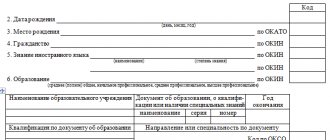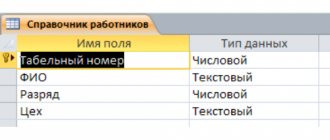Do they have the right to fire me for failure to meet the sales plan?
Formally, your employer can find a reason to fire you, and judging by your letter, this mechanism has already been worked out quite well, but there is a small “but” that can be relied on in court, the article reads like this (in case of repeated failure by the employee to valid reasons for work duties), this formulation and confirmed facts, overestimation of personal sales plans by management, will be a powerful argument in your favor.
I'll start with the fact that Art.
Arbitrage practice
If we talk about judicial consideration of such disputes, then, to everything that has already been listed, we can add the following:
The justice authorities also take into account why exactly the planned amount of work was not completed. For example, a bank employee was required to “sell” 10 dollar loans per month. But the socio-economic situation in the country has changed significantly, the ruble has fallen, and the US currency rate has creeped up, accordingly. Taking this into account, people simply stopped taking out loans in dollars. These are objective reasons that the employer is obliged to take into account.
Thus, dismissing an employee for failure to fulfill the plan is not so easy, but it is possible under certain circumstances.
Is it possible to fire someone for failure to fulfill the plan?
I work at a bank at an express lending point. There is only one point in the city. The authorities are located elsewhere. I work 5/2. Sometimes I go part-time on a day off. It depends on the circumstances.
The point was opened on May 24. The sales plan was told to me verbally how much I should fulfill. Sometimes they sent me a document in Excel so that I could fill out the plan. I didn’t sign any documents that I had to do so much “nosebleed”.
On August 22, my boss calls me and tells me to write “on my own” from August 31.
Grounds and reasons
According to the provisions of Art. 81 of the Labor Code of the Russian Federation, the entire set of reasons for dismissal related to work duties can be divided into two main categories:
- Failure by the employee to fulfill his functional duties (clause 5) – in this case we are talking about the functions and tasks that are prescribed in the text of the job description of the troublemaker. For example, such reasons could be:
- systematic failure to fulfill the sales plan;
ignoring instructions from senior management;
- avoidance of current tasks, etc.
- Gross one-time violation of labor duties (clause 6) – the following cases fall into this group:
- absenteeism, which means an employee’s absence from work (without good reason) for one working day (or at least more than 4 hours);
- being at the workplace drunk, under the influence of drugs or other prohibited substances;
- disclosure of secrets protected by law (state, commercial, official, etc.), which the employee became aware of when transferring to a certain position;
- committing theft, embezzlement at work, as well as intentional damage to the employer’s property;
- non-compliance with labor safety rules, if this led to serious consequences (accident, death of a person at work, etc.) or created a threat of their occurrence.
In order for an employee to be fired on this basis, the failure to fulfill official duties must be repeated.
Is it possible to fire an employee for failure to meet a sales plan?
In the “Employer's Rights” section of the employment contract there is a clause according to which the employer has the right to dismiss an employee on the basis of failure to meet the planned target for one of the indicators for a specific month. If an employee does not fulfill the task according to one of the indicators in one of the months and the employer, on the basis of an employment contract, decides to dismiss this employee, does the employee have the right to appeal such a decision? What consequences may the employer face?
Establishing a sales plan for an employee does not contradict the requirements of labor legislation.
Can an employment contract be terminated?
Having studied Article 81 of the Labor Code of the Russian Federation, we can come to the conclusion that the law does not give the employer the right to dismiss for failure to perform certain amounts of work (services).
It is worth paying attention to two grounds for termination of employment at the initiative of the organization’s management:
- Repeated failure to fulfill job duties.
- Inconsistency with the position held.
Failure to fulfill duties
What should happen:
This is important to know: Transfer of conscripts to the reserve
- Repeatability. That is, the employee did not fulfill the plan that he should have been guided by during the month. According to Art. 192 a disciplinary sanction may be imposed on him. These include: warning, reprimand. If the plan is not met three times, the employee can be fired. But there are some nuances here too. First, you need to follow the procedure for applying a penalty: assemble a commission, prepare an act, and so on. Secondly, you need to remember that you need to use a warning or reprimand no later than 1 month from the date of violation of labor discipline by the employee. Finally, the period for which the plan is set is very important. If it is one month, then the employee can be punished once every 30 days, provided that he never fulfills the plan. If the period is one year, then it will be possible to fire an employee for failure to fulfill the plan only after 3 years. Provided that there are no other violations.
- Establishing the fact of non-fulfillment of duties. This is what was discussed above. Failure to implement the plan will be a failure to fulfill labor duties only if it is enshrined in some local acts.
Inconsistency with the position held
Everything is much more complicated here. It is better for the employer not to go down this path. Causes:
- The issue of inconsistency is decided by the commission, which, according to Art. 82 of the Labor Code of the Russian Federation, must include a representative from the trade union. He is expected to take the employee's side.
- An employee may be recognized as unsuitable for his position if he does not fulfill the duties assigned to him by a local act of the organization: labor, collective agreement, and so on.
- The results of the certification may be challenged in court.
Thus, if the plan was legally approved, then the employer will have to reprimand and reprimand, and then fire the person. This does not apply to certain categories of workers.
This is important to know: 2000 Dismissal Order
Who is the easiest and hardest to fire for failure to fulfill the approved volumes?
The easiest way for an employer to part with an employee who is on a probationary period. Art. 71 of the Labor Code of the Russian Federation gives the head of the organization the right to terminate the contract early if the results are unsatisfactory.
The most difficult thing to fire is a pregnant woman, a single mother, a woman with many children, etc. These categories of workers are protected by Art. 261 Labor Code of the Russian Federation.
Features of dismissal for violation of labor activity
Dismissals due to violation of discipline - how does this happen, what documents need to be filled out, how is the procedure structured? If you are asking this question, then you simply need to read this article.
If you are an employer, you must firmly remember that any of your actions related to labor relations must be carried out only in strict compliance with all norms and requirements of labor legislation.
For example, you can fire for violation of labor discipline under paragraph five of the eighty-first article of the Labor Code, which states that if an employee does not fulfill his job duties, has a disciplinary sanction, and this is not an isolated case, then he can be fired.
What this very discipline is, the violation of which is so unsafe, is stated in article one hundred and eighty-nine of the Labor Code of the Russian Federation.
Consolidating the plan
It was stated above that the plan must be correctly drawn up and, in addition, communicated to the person who is entrusted with the responsibilities for its implementation.
And here it is possible to implement several options to choose from:
- The obligation to implement the plan is prescribed in the employment or collective agreement. Usually, no one does this. For different reasons. In particular, because many employers take standard templates as the basis for contracts, which do not contain everything related to sales plans and the like.
- The employer has the opportunity to sign an order approving a specific plan. In this case, you need to obtain a signature from the employee indicating that he is familiar with the contents of the paper.
This is important to know: Can you be fired from your job if you pay alimony?
Only in these cases can we say that the employee is obliged to perform the approved amount of work, and for failure to fulfill such an obligation he may be held liable. If the employee was not initially required to fulfill any plans, then violations cannot be seen in his actions.
An example from practice: the manager of a company selling plastic windows received a letter to his e-mail, where the boss indicated that in May and June he needed to sell 10 sets of products each. Local regulations do not talk about any mandatory sales levels. The employee was unable to sell 10 sets in May. Can he be punished?
The answer is obvious: no, they cannot. Causes:
- The employee’s employment contract states that he must perform work that includes negotiating with clients and drawing up contracts. There is no talk of plans.
- Even if the agreement between the parties had somehow mentioned the plan, in this case it was not communicated to the employee properly. Failure to order is a violation.
Thus, liability can, in many cases, be avoided.
If all the documentation is completed correctly, what should an employee who has not fulfilled the plan expect?
How to legally fire an employee
However, it is not enough for an employer to know for what reasons an employee who has become objectionable can be fired. It is important to do this in compliance with the established procedure, since its violation is often grounds for reinstating the citizen to his previous place - through the court. Therefore, the employer needs to have information on how to legally dismiss an employee, so as not to see him again among his subordinates.
Many questions about how to fire an employee without his consent can also be clarified by reading the judicial practice. In particular, it concerns dismissal under clause 3 of Article 81, that is, for the inadequacy of a subordinate for the position held. According to the Cassation ruling of the St. Petersburg City Court No. 33-424/2011 dated 02/01/2011, before dismissing an employee on this basis, it is necessary to convene an attestation commission and receive a written conclusion from it (on non-compliance). If the commission is not convened, or its conclusion is different, termination of the employment contract under this clause is considered illegal.
Any violation that is a reason for dismissal must be recorded on paper or other media. For example, if labor discipline was violated or absenteeism was committed, an explanatory note should be required from the subordinate. If he refuses, a corresponding act is drawn up and signed by eyewitnesses.
Thus, the answer to the question whether an employee can be fired without the consent of an employee will be positive if there are legal grounds for this, and the employer is ready to document them.
How to formalize a dismissal?
Dismissal must be carefully considered and properly executed.
Article 192 of the Labor Code allows you to dismiss an employee if the following conditions are simultaneously met:
- the presence of evidence that the employee is directly related to the unfulfilled plan;
- the contract clearly states the standards for implementing the plan; upon taking office, the employee must know what kind of work he will have to do;
- the plan indicators are individual in nature and do not depend on the performance of other employees;
- there were repeated violations of the requirements of the plan, for example, a reprimand was previously issued;
- documentary evidence of non-fulfillment of planned indicators (reports, memos, etc.).
Expert opinion
Novikov Oleg Tarasovich
Legal consultant with 7 years of experience. Specializes in criminal law. Member of the Bar Association.
If dismissal is carried out for failure to fulfill the sales plan, the termination of the employment relationship with the employee is documented as failure to fulfill official duties.
The procedure is as follows:
- the immediate supervisor informs the director of the company that the employee has committed a violation (in the form of a report or memo);
- the administration of the enterprise sends the employee a request for a written explanation, for which a period of 2 days is given;
- the employee writes an explanatory note, where he must set out the facts and circumstances of non-fulfillment of the plan. In this document, you can prove your innocence and express your desire to change your current attitude towards work in the future. This is done with the help of evidence from other employees, a description of the reasons, an explanation of the misunderstanding and one’s actions;
- in case of refusal to write an explanatory note, an act is drawn up in which two witnesses confirm this fact;
- the employer draws up an order for disciplinary action against the employee, and at the same time an order for dismissal is issued as a last resort. The employee must read this document and sign;
- after this, the dismissed person receives the payments required by law;
- The procedure is completed with an entry in the personal card and work book, which the employee receives on the day of dismissal.
Let's sum it up
- You cannot fire someone for failure to fulfill the plan as such, only for repeated failure to fulfill official duties.
- The employer must prove the fact of non-compliance.
- The execution of the plan by some employees does not in any way affect the evidence of non-fulfillment by others.
- Evaluation criteria cannot be evidence, for example, “insufficient recruitment”, “low coverage”, etc.
- Factors of evidence can only be specific indicators recorded in official documentation: employment contract, sales plans, job description, etc., as well as the requirements of current legislation.
- The offense for which a penalty is imposed must be specific, that is, provided for in regulations. An employer does not have the right to punish for what he personally considers a misdemeanor.
A much more effective solution for management is to create a differentiated wage system, in which failure to fulfill the plan for employees will be fraught with loss of bonuses.
2-388/11, decision to cancel the order imposing a disciplinary sanction
I have a clause in my job description where it is written that my responsibilities include fulfilling the monthly, quarterly and annual sales plan. Does this formulation apply to my situation? Can I appeal this in the future in court and at the labor inspectorate? I believe that the sale does not depend only on me alone. For example, the marketing department did a poor job - there were few incoming requests and therefore few sales.
Why am I becoming extreme? Natalya left a review about the site - show disciplinary sanctions, appealing a disciplinary sanction, failure to fulfill official duties, how to write an explanatory note Collapse Lawyers' answers (5)
- All legal services in Moscow Assistance with transfer to part-time work Moscow from 15,000 rubles. Changing the grounds for dismissal Moscow from 1000 rubles.
Consequences for the employer
An employer who wrongfully fired an employee for failure to comply with the plan will have to carry out all the actions prescribed by the court decision:
- reinstate the unfairly dismissed person in his previous position;
- pay him wages and compensation for forced absences through no fault of his;
- if there are relevant points in the court decision - pay compensation for moral damage and compensation for damage, if any.
Additionally, damage to business reputation is caused, a decrease in the loyalty of working employees and, as a result, personnel problems, an increase in the likelihood of inspections by various authorities.









